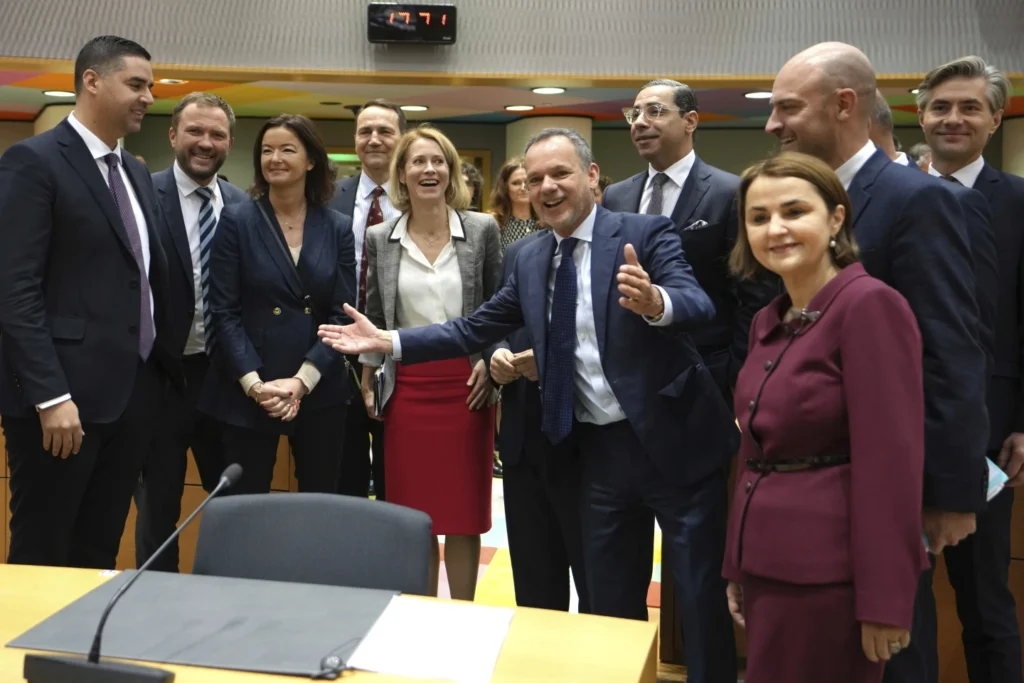The European Union has announced a new wave of sanctions against Russia, expanding its measures to include dozens of officials and entities linked to Moscow’s war effort in Ukraine. Among those targeted are two senior North Korean defense officials, a Russian military unit accused of striking a Kyiv children’s hospital, and key figures in the energy sector.

A major focus of the latest sanctions is Russia’s vast shadow fleet, a network of vessels used to bypass restrictions on oil and gas transportation or smuggle stolen Ukrainian grain. The EU has blacklisted 52 additional ships, barring them from European ports and cutting off their access to critical services.
“This package of sanctions is part of our response to weaken Russia’s war machine and those who are enabling this war, including Chinese companies,” said EU foreign policy chief Kaja Kallas. “We will stand by the Ukrainian people on all fronts: humanitarian, economic, political, diplomatic, and military.”
The latest measures freeze the assets of 54 individuals and 30 entities, which include companies, government agencies, and ministries involved in supporting Russia’s war. Travel bans were also imposed on numerous officials.
Since Russia’s full-scale invasion of Ukraine in February 2022, the EU has enacted multiple rounds of sanctions, now impacting more than 2,300 individuals and entities.
Among the latest targets is North Korean Defense Minister No Kwang Chol, accused of directly overseeing military cooperation with Russia, including the deployment of thousands of North Korean troops. Also sanctioned is Kim Yong Bok, Deputy Chief of the armed forces’ General Staff, who reportedly traveled to Russia to supervise troop operations.
The sanctions extend beyond individuals to major industries aiding Russia’s war machine. Affected entities include Russian defense firms supplying arms and military equipment, a Russian chemical plant suspected of producing war-related materials, and a Russian airline allegedly providing logistical support to the military. Chinese suppliers accused of sending drone components and electronic equipment to Russia were also targeted.
Additionally, companies and individuals in China, India, Iran, Serbia, and the United Arab Emirates were sanctioned for allegedly helping Russia evade EU restrictions, particularly by supplying materials used in drones and missiles.
The move marks yet another escalation in the EU’s ongoing efforts to disrupt Russia’s ability to sustain its war in Ukraine while widening pressure on nations and entities supporting Moscow.



